I’m just stating this for fun. If you are doing any challenges, I’d love to hear what you’re reading too. For 2026, I will aim for 120 books again for the Goodreads challenge number. If the library does a challenge this year, I’ll do that. I’m also doing the Read Harder Challenge and two StoryGraph ones.
For the Read Harder Challenge for 2026, below are the categories and my intended books:
A Gentle Madness: Bibliophiles, Bibliomanes, and the Eternal Passion for Books by Nicholas A. Basbanes - a micro-history
Liquid: A Love Story by Mariam Rahmani - a book featured on a “best book covers” list
Burn Baby Burn by Meg Medina - a YA book by a Latine author
Lakelore by Anna-Marie McLemore - a novel with a main character who uses they/them pronouns
The Deviant's War: The Homosexual Vs. the United States of America by Eric Cervini - a nonfiction book about resistance
The Bewitching by Silvia Moreno-Garcia - a gothic novel published in the last ten years
Fair Play: How Sports Shape the Gender Debates by Katie Barnes - a sports book by a woman, trans, or nonbinary writer
The Parable of the Sower by Octavia Butler - a classic from the Zero to Well-Read Podcast
Small Miracles by Olivia Atwater - a romantasy book with a queer and/or BIPOC main character
People We Meet on Vacation by Emily Henry - a book recently adapted for film, TV, or musical
Give Me a Sign by Anna Sortino - a book by a d/Deaf author
New Native Kitchen by Freddie Bitsoie - try a recipe from a cookbook about a culture whose food you’ve never eaten
My Lesbian Experience with Loneliness by Kabi Nagata, translated by Jocelyne Alleni - a nonfiction comic
A Love Song for Ricki Wilde by Tia Williams - a work of magical realism or fabulism
That Librarian: The Fight Against Book Banning in America by Amanda Jones - a book by a librarian
Kapaemahu by Hinaleimoana Wong-Kalu and others - a queer picture book
Cultish: The Language of Fanaticism by Amanda Montell - a book about a cult or cults
The AI Mirror: How to Reclaim Our Humanity in An Age of Machine Thinking by Shannon Vallor - a nonfiction book about AI or social media
Sorrowland by Rivers Solomon - a book by an intersex author
Murder by Memory by Olivia Waite - a book set in space
Frankenstein in Baghdad by Ahmed Saadawi and translated by Jonathan Wright - a genre (SFF, horror, mystery, romance) book in translation
Catch Me If You Can by Frank W. Abagnale - a nonviolent true crime book
Purple Hibiscus: A Novel by Chimamanda Ngozi Adichie - a book by an African author
We Computers: A Ghazal Novel by Hamid Ismailov and translated by Shelly Fairweather-Vega - Pick a challenge from any of the previous years’ challenges to repeat! (a historical fiction book set in an Eastern country from 2023).
Here are the books for StoryGraph’s Reads the World Challenge:
The Widow’s Husband by Tamsin Ansary - Afghanistan
A Girl in Exile by Ismail Kadare - Albania
A Short Tale of Shame by Angel Igor and translated by Angela Rodel - Bulgaria
Hair Everywhere by Tea Tulić and translated by Coral Petkovich - Croatia
The French Resistance by Olivier Wieviork and translated by Jane Marie Todd - France
The President’s Gardens by Muhsin Al-Ramli - Iraq
For Bread Alone by Mohamed Choukri and translated by Paul Bowles - Morocco
Djeliya by Juni Ba - Senegal
Beartown by Fredrik Backman and translated by Neil Smith - Sweden
The Lotus Flower by Love Dunn and Pintip Dunn - Thailand
And here the StoryGraph Genre Challenge:
The Book of Gaza: A City in Short Fiction edited by Atef Abu Saif - a short story collection in translation
An indigenous Peoples’ History of the United States by Roxanne Dunbar-Ortiz - a nonfiction book about indigenous history
A Lady for a Duke - Alexis Hall - a queer historical romance novel
Crime and Punishment by Fyodor Dostoevsky - a translated classic
Sia Martinez and the Moonlit Beginning of Everything by Raquel Vasquez Gilliland - a young adult novel by a Latinx author
James Baldwin by Magdalena J. Zaborowsko - a biography about a Black historical figure
The Shadow of the Wind by Carlos Ruiz Zafán and translated by Lucia Graves - a crime novel set outside of the US, UK, or Canada
Justice: What’s the Right Thing to Do by Michael J. Sandel - a nonfiction book about philosophy
TBD - a literary or contemporary debut published in 2026
Scythe by Neil Shusterman - the first book in a fantasy series
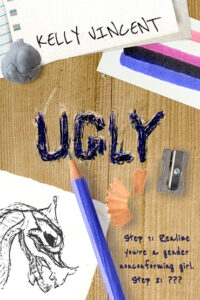
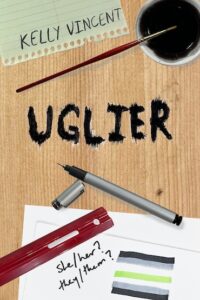
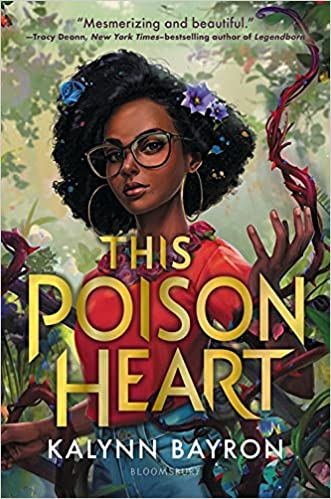 I read this book so fast. Some of you know how I’ve been in a terrible reading slump for over two years and how it’s generally taking me weeks to finish a single book (though I am always reading several at once, but it’s still slowed way down, to what feels like a crawl). So when I say I read this book fast, I mean 7 days, which is a near record for me lately. This was definitely a “couldn’t put it down” book several nights.
I read this book so fast. Some of you know how I’ve been in a terrible reading slump for over two years and how it’s generally taking me weeks to finish a single book (though I am always reading several at once, but it’s still slowed way down, to what feels like a crawl). So when I say I read this book fast, I mean 7 days, which is a near record for me lately. This was definitely a “couldn’t put it down” book several nights.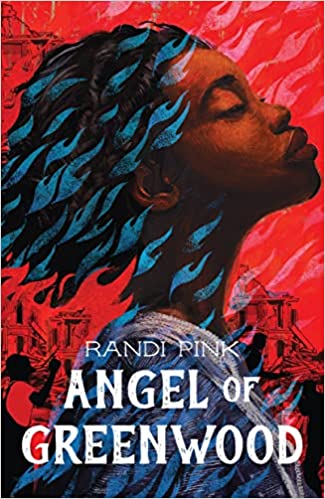 As soon as I knew this book existed, I bought it. It’s set amidst the Tulsa Race Massacre. I have a special interest in that event because I grew up in Tulsa and knew nothing about it until about five years ago. It blows my mind that this is something that was “forgotten.” It makes me so mad, but it fits right in with all the Republicans who are insisting that the unsavory parts of our history shouldn’t be taught in school because it might make some little white kids feel guilty. A little guilt never hurt anyone, and it would make it easier for them to understand their privilege. I think this is actually quite important.
As soon as I knew this book existed, I bought it. It’s set amidst the Tulsa Race Massacre. I have a special interest in that event because I grew up in Tulsa and knew nothing about it until about five years ago. It blows my mind that this is something that was “forgotten.” It makes me so mad, but it fits right in with all the Republicans who are insisting that the unsavory parts of our history shouldn’t be taught in school because it might make some little white kids feel guilty. A little guilt never hurt anyone, and it would make it easier for them to understand their privilege. I think this is actually quite important.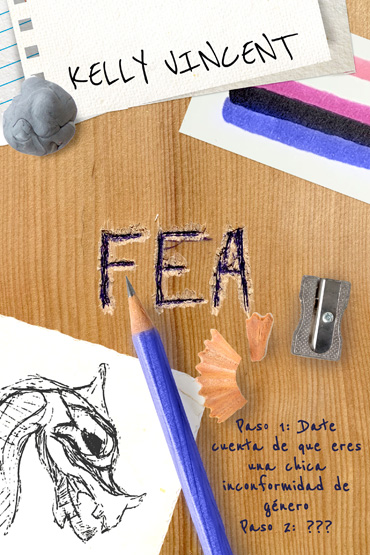
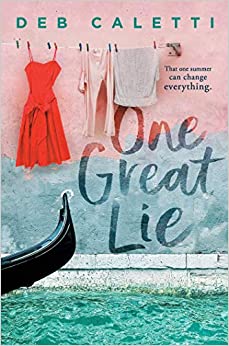 I’ve been in the worst reading slump lately. From early March until a couple weeks ago, I read only one novel, and it was really hard to get through (not the novel’s fault—it was all me). But I’ve been wanting to break out, so I picked up Caletti’s newest. I started it on Friday and was so sucked in that I finished it the next day. It may have broken the slump (I’m hoping), as I’ve read another book since then, too.
I’ve been in the worst reading slump lately. From early March until a couple weeks ago, I read only one novel, and it was really hard to get through (not the novel’s fault—it was all me). But I’ve been wanting to break out, so I picked up Caletti’s newest. I started it on Friday and was so sucked in that I finished it the next day. It may have broken the slump (I’m hoping), as I’ve read another book since then, too.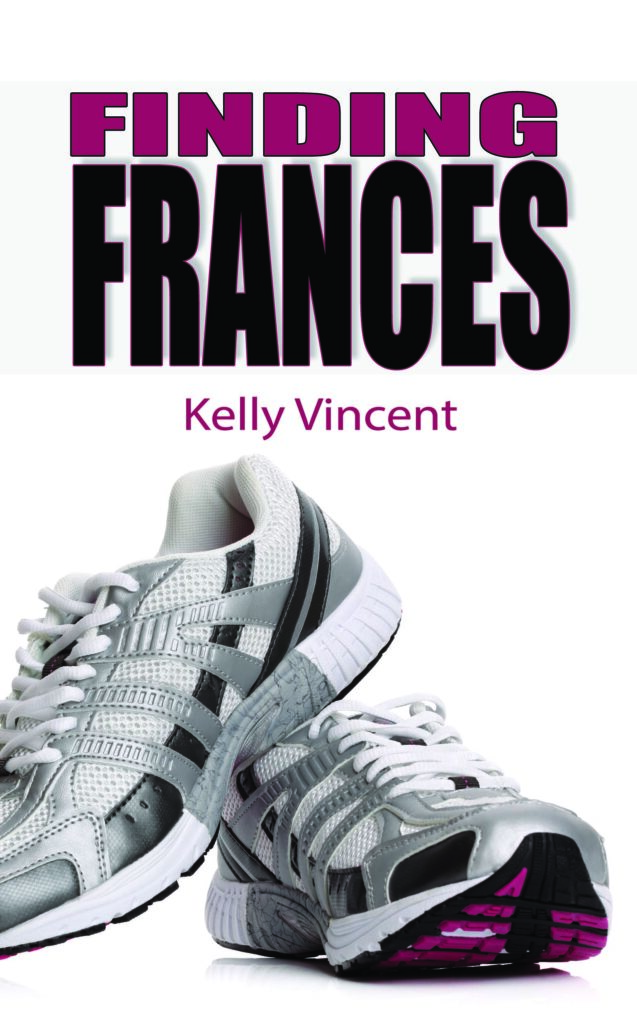
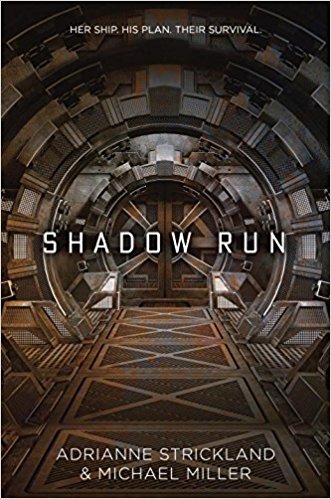
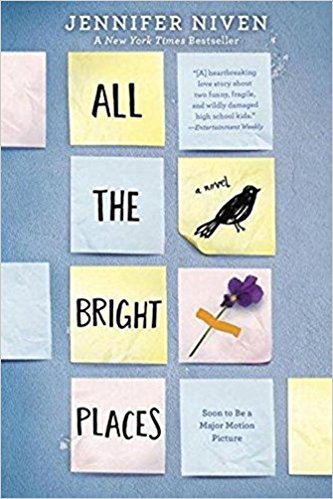 All the Bright Places sort of destroyed me for a day, it was so emotionally demanding. I mean, the story took me through the wringer and once I’d finished it, I couldn’t stop thinking about it and reliving the emotions I’d felt while reading it. I came to the book without being aware of the hype and the comparisons to Eleanor and Park and The Fault in Our Stars. Despite that, Eleanor and Park was exactly the book it made me think of, not because of the story, but because of the emotional depth and the journey it took me on.
All the Bright Places sort of destroyed me for a day, it was so emotionally demanding. I mean, the story took me through the wringer and once I’d finished it, I couldn’t stop thinking about it and reliving the emotions I’d felt while reading it. I came to the book without being aware of the hype and the comparisons to Eleanor and Park and The Fault in Our Stars. Despite that, Eleanor and Park was exactly the book it made me think of, not because of the story, but because of the emotional depth and the journey it took me on.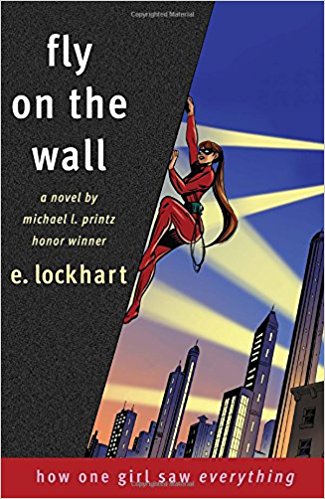 Have you ever wished to be a fly on the wall somewhere totally inaccessible to you? Gretchen Yee does, and, strangely and without explanation, she gets her wish.
Have you ever wished to be a fly on the wall somewhere totally inaccessible to you? Gretchen Yee does, and, strangely and without explanation, she gets her wish.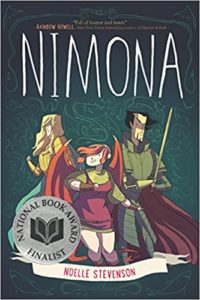 I don’t remember how I found out about this graphic novel, but I’m glad I did, because it was highly entertaining. Although art is generally a matter of personal preference, I liked it. The book features Nimona, a shapeshifter whose base form is that of a teenage girl, and Ballister Blackheart, the kingdom’s purported notorious villain. Blackheart has a vendetta against Ambrosius Goldenloin, who destroyed Blackheart’s right arm. These are the folks you see on the cover. The comic is set in a vaguely medieval world with advanced science. It’s clever and even subversive at times, all while managing to be hilarious.
I don’t remember how I found out about this graphic novel, but I’m glad I did, because it was highly entertaining. Although art is generally a matter of personal preference, I liked it. The book features Nimona, a shapeshifter whose base form is that of a teenage girl, and Ballister Blackheart, the kingdom’s purported notorious villain. Blackheart has a vendetta against Ambrosius Goldenloin, who destroyed Blackheart’s right arm. These are the folks you see on the cover. The comic is set in a vaguely medieval world with advanced science. It’s clever and even subversive at times, all while managing to be hilarious.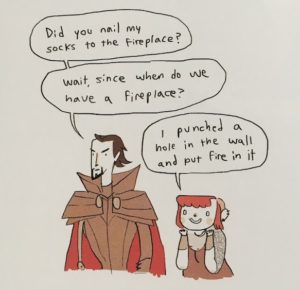
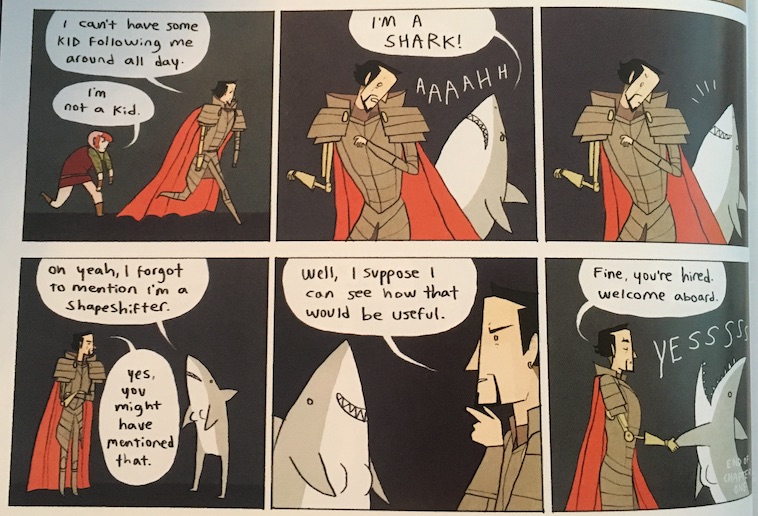
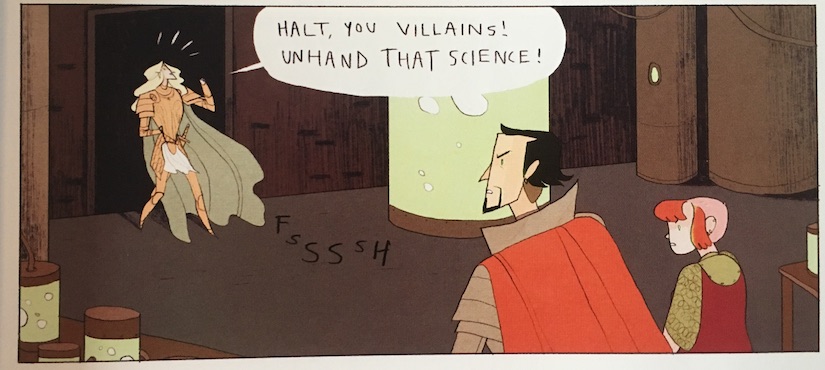
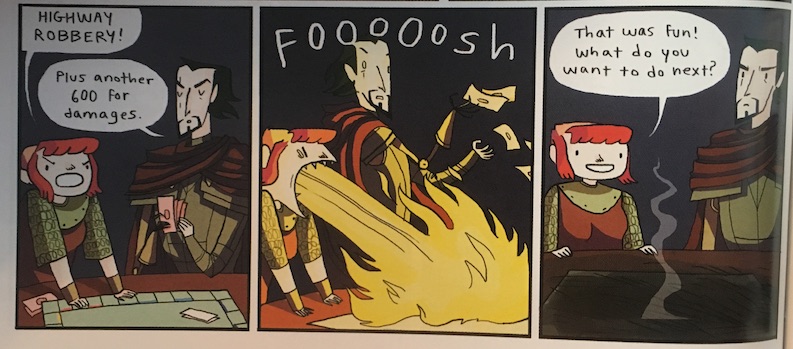
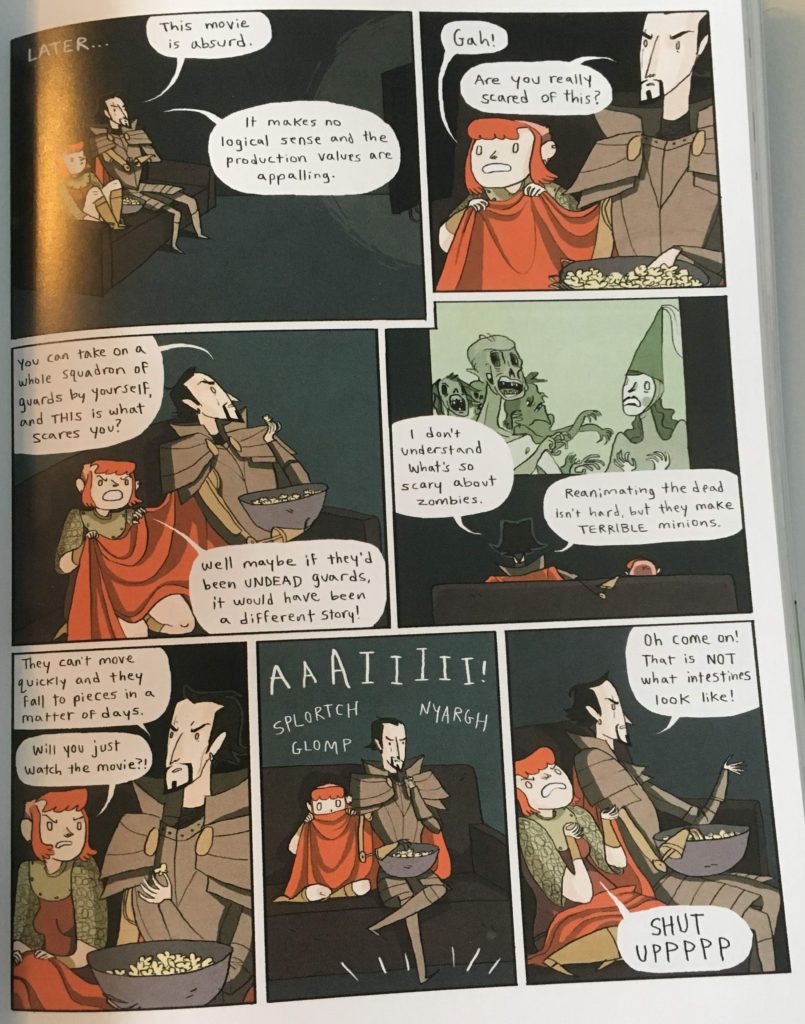
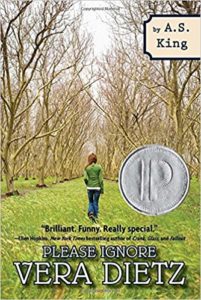 I listened to the audiobook version of A.S. King’s Ask the Passengers and a friend recommended another of her books, so when I was at Powell’s* when I was in Portland (Oregon) last weekend and spotted this book, I picked it up.
I listened to the audiobook version of A.S. King’s Ask the Passengers and a friend recommended another of her books, so when I was at Powell’s* when I was in Portland (Oregon) last weekend and spotted this book, I picked it up.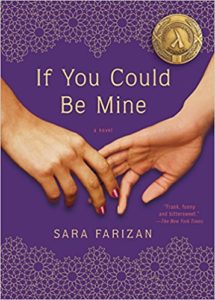 If You Could Be Mine is set in modern-day Iran, which is definitely a setting I’m not very familiar with, so I was excited to read it. It’s narrated by Sahar, a seventeen-year-old lesbian, which is not okay in Iran. In fact, it’s illegal and the penalty can be as dramatic as death. The immediate problem for Sahar is that she has been in love with her friend Nasrin for as long as she can remember, and Nasrin loves her back. Of course, they spend a lot of time alone and this allows them to make out uninterrupted, so everything is fine.
If You Could Be Mine is set in modern-day Iran, which is definitely a setting I’m not very familiar with, so I was excited to read it. It’s narrated by Sahar, a seventeen-year-old lesbian, which is not okay in Iran. In fact, it’s illegal and the penalty can be as dramatic as death. The immediate problem for Sahar is that she has been in love with her friend Nasrin for as long as she can remember, and Nasrin loves her back. Of course, they spend a lot of time alone and this allows them to make out uninterrupted, so everything is fine.